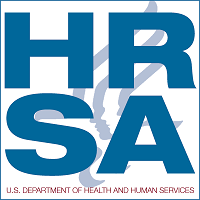 Funding will expand the number of nurses and primary care physicians, promote behavioral health integration into pediatric care, and support behavioral health needs of children in families impacted by the opioid crisis
Funding will expand the number of nurses and primary care physicians, promote behavioral health integration into pediatric care, and support behavioral health needs of children in families impacted by the opioid crisis
The Health Resources and Services Administration (HRSA), an agency of the U.S. Department of Health and Human Services (HHS), announced nearly $100 million in awards to grow, support, and strengthen the health workforce and improve access to quality care in high-need areas across the country. The announcement was made in conjunction with an HHS Health Workforce Roundtable convened as part of HHS Secretary Xavier Becerra’s Health Workforce Initiative.
“HHS launched our Health Workforce Initiative last year to make sure our country has enough health workers, and that those health workers are receiving the support they deserve. The Biden-Harris Administration continues to invest in recruiting, training, and supporting the health workforce, so high-quality care is accessible for all,” said HHS Secretary Xavier Becerra. “It is especially important that we address workforce shortages in underserved and rural communities, where access is often lacking.”
“At the same time that the Biden-Harris Administration achieves sizable gains in health care coverage, we are also making critical investments to grow a top-notch health workforce to deliver that care,” said HRSA Administrator Carole Johnson. “At the Health Resources and Services Administration, our work across health workforce disciplines is helping to build the next generation of the health workforce and overcome barriers to care.”
The awards HRSA is announcing today will enhance and expand the number of nurses and primary care physicians, while increasing behavioral health support by growing the community-based workforce.
This announcement includes the following HRSA investments:
- Growing the nursing workforce for acute and long-term care: HRSA is awarding more than $19 million over four years to five schools, including two community colleges, to increase the nursing workforce practicing in acute care settings and long-term care facilities.
- Increasing the primary care physician workforce in high-need areas: HRSA is providing nearly $12 million in 2024 to three medical schools to help boost the number of primary care physicians in medically underserved rural, and tribal communities.
- Responding to the nation’s opioid crisis: HRSA is awarding more than $63 million over four years to 32 organizations to train and increase the number of peer support specialists and other community-based providers, such as community health workers, to provide mental health services and family support to children whose parents or guardians are impacted by opioid use disorders and other substance use disorders.
- Integrating mental health care in pediatric care: HRSA is providing an additional $4.6 million to existing grantees to expand their efforts to provide pediatricians mental health training and to support pediatricians in conducting tele-consultations with psychiatrists to provide real-time behavioral health support to their child and adolescent patients.
